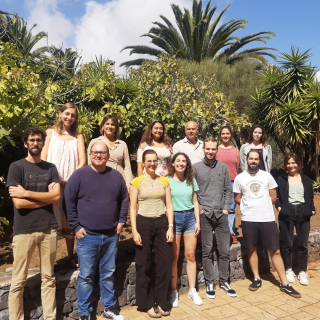Bibcode
Martín-Navarro, I.; Vazdekis, A.; La Barbera, Francesco; Falcón-Barroso, J.; Lyubenova, Mariya; van de Ven, Glenn; Ferreras, Ignacio; Sánchez, S. F.; Trager, S. C.; García-Benito, R.; Mast, D.; Mendoza, M. A.; Sánchez-Blázquez, P.; González Delgado, R.; Walcher, C. J.; The CALIFA Team
Bibliographical reference
The Astrophysical Journal Letters, Volume 806, Issue 2, article id. L31, 5 pp. (2015).
Advertised on:
6
2015
Citations
129
Refereed citations
124
Description
Variations in the stellar initial mass function (IMF) have been invoked
to explain the spectroscopic and dynamical properties of early-type
galaxies (ETGs). However, no observations have yet been able to
disentangle the physical driver. We analyze here a sample of 24 ETGs
drawn from the CALIFA survey, deriving in a homogeneous way their
stellar population and kinematic properties. We find that the local IMF
is tightly related to the local metallicity, becoming more bottom-heavy
toward metal-rich populations. Our result, combined with the galaxy
mass–metallicity relation, naturally explains previous claims of a
galaxy mass–IMF relation, derived from non-IFU spectra. If we
assume that—within the star formation environment of
ETGs—metallicity is the main driver of IMF variations, a
significant revision of the interpretation of galaxy evolution
observables is necessary.
Related projects

Traces of Galaxy Formation: Stellar populations, Dynamics and Morphology
We are a large, diverse, and very active research group aiming to provide a comprehensive picture for the formation of galaxies in the Universe. Rooted in detailed stellar population analysis, we are constantly exploring and developing new tools and ideas to understand how galaxies came to be what we now observe.
Anna
Ferré Mateu